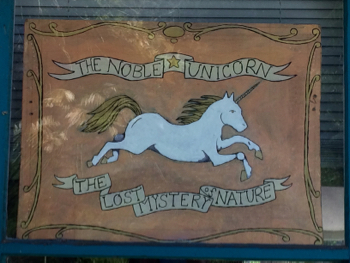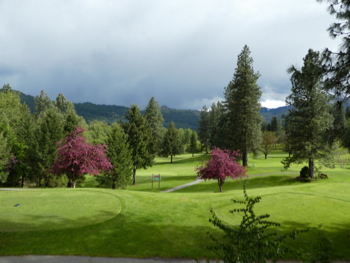What Are You Like Right Now?

Self awareness, spiritual presence, motivational impetus, real will, clarity, excellent boundaries: All of these advantageous states of being have in common knowing what we are like, right now in this moment.
Let’s talk about this speech pattern we’re hearing so much of lately, where people stammer: “And I’m like, I’m like,” or even more deeply still, “I was like, I was like.”
By definition, “like” is always similar, never definite, always indistinct, always approaching, never arriving. Never fully here. Like is “not quite.” Like is “sort of.” Like is “almost” or “maybe.”
In energy work, healing and diagnoses, the more exactly one perceives actual conditions the more power one has to influence, impact, heal and change them. Sort of, almost and somewhere-in-the-ball-park, leave a great deal of margin for error.
It is old news that our speech patterns reflect inner processes. What does this one reflect?
Sometimes uncertainty. Sometimes a need for approval. Sometimes being overly porous and letting in the energetics of people with the same pattern—which is one reason this linguistic virus has spread so much.
Discussing this speech pattern with people when it is active, I’ve explored what is happening inside as this almost spasmodic linguistic loop is taking over their communication. They usually don’t even hear it.
What about self awareness? If we’re saying something constantly and we do not hear it or notice it, let alone assign any meaning or value to it, what does this communicate to others? How does it impact us?
Indeed, everyone of us is asleep to ourselves to a lesser or greater degree from moment to moment. We think we are self aware. We generally don’t notice our bugs, twitches, automatic behaviors, or habitual speech patterns. Yet we can use any of these to wake ourselves up a bit more by observing them and feeling into how they arise within us. Being present to them and relaxing any judgment we may have about them allows us to view them  instead of checking out and becoming unconscious.
instead of checking out and becoming unconscious.
Underneath the patterns that put us to sleep, we’re almost always uncomfortable or in some kind of dismay. Self observation really does require the ability to lean into our underlying discomfort. Discovering it gives us an opportunity to minister to it with kindness.
“I was like,” shelters discomfort. I feel nervous and uneasy when I hear people saying it. I know this is true for other people too because friends, colleagues, and even strangers have mentioned it. Some want to shake people who say it and demand, “What ARE you like? Right now?”
That speech pattern runs counter to my drive to wake up, and to help others wake up—expression of which may or may not be welcome in the moment. Part of my reaction is childhood stuff about not being heard or feeling valued. So when someone who is not present is talking to me, a young part of me feels uncomfortable. I aim to lean into that discomfort, to relax it, to affirm to myself that I do indeed exist, giving myself the compassion that was absent in the past.
If you have that speech pattern, or if you react to it in others, you can use it in your spiritual work to wake yourself up. Notice what is happening inside and make a kind and intentional response.
If you say, “I’m like, I was like,” give yourself permission to HEAR and FEEL yourself doing it. Meet it with curiosity. Relax any shame. Treat it like a stone that you roll over gently with your toe. Look underneath.
Ask yourself: “What is going on in this moment? Who AM I right now? What do I want? What do I need? What are my boundaries?”
Nail it exactly! What are you—right now?
Be sincere—not rhetorical. Rhetorical in general questions, posed to one’s self, like “Who do you think you are?” tend to be aggressive or shaming. A beautiful fix for the internal impasse this piece of meanness creates is to answer the question with full sincerity.
Sincerity is a real response that makes defense unnecessary. If you respond to, “Who do you think you are?” with an accurate and compassionate summary of who you are and what is important to you in the moment, the mean voice will bow out. By defining yourself in the moment, you are not subject to being defined by shaming voices.
Much spiritual growth relies on being able to hear and make constructive responses to our internal voices. Whether those voices are shaming ones or the voice of inner guidance, learning to recognize them is a big advantage. Then we can tell the difference between guidance and desire or compulsion.
With time and application, we learn to feel in our bodies the difference between these voices by the vibrations they initiate and the states they establish within us.
Where and how does a particular voice resonate inside? What does it lead to?


 ourselves by exerting force.
ourselves by exerting force.
 energy go.
energy go.
 always other choices. Either/or must not be allowed to reign. It’s a trap.
always other choices. Either/or must not be allowed to reign. It’s a trap.
 want, so we can co-operate in harmony. When we don’t communicate who we are we make it harder to have a mutual flow of love.
want, so we can co-operate in harmony. When we don’t communicate who we are we make it harder to have a mutual flow of love.
 When we feel like we want to die it’s usually because we are not taking good enough care of our bodies. The mammal needs love and nourishment.
When we feel like we want to die it’s usually because we are not taking good enough care of our bodies. The mammal needs love and nourishment.
 discontent, feel into it, we find ways to hold ourselves accountable for meaning in our lives. We find ways to inspire ourselves by discovering what matters to us truly, and feel our way, if blindly, into giving things that matter shape and form on our outsides, expression, perhaps even life direction.
discontent, feel into it, we find ways to hold ourselves accountable for meaning in our lives. We find ways to inspire ourselves by discovering what matters to us truly, and feel our way, if blindly, into giving things that matter shape and form on our outsides, expression, perhaps even life direction.
 or unnecessary steps in development.
or unnecessary steps in development.
 artifice, and layers of social conditioning that stem from how they need to carry themselves based on what they tell themselves and what they have been told by other people and how they think they should be, and all the basic stuff—which I have too, but I may be less conditioned and more aware of it.
artifice, and layers of social conditioning that stem from how they need to carry themselves based on what they tell themselves and what they have been told by other people and how they think they should be, and all the basic stuff—which I have too, but I may be less conditioned and more aware of it.
 overlooked part of a golf course. So I sat and just looked out the window without doing anything—which is unusual for me.
overlooked part of a golf course. So I sat and just looked out the window without doing anything—which is unusual for me.
